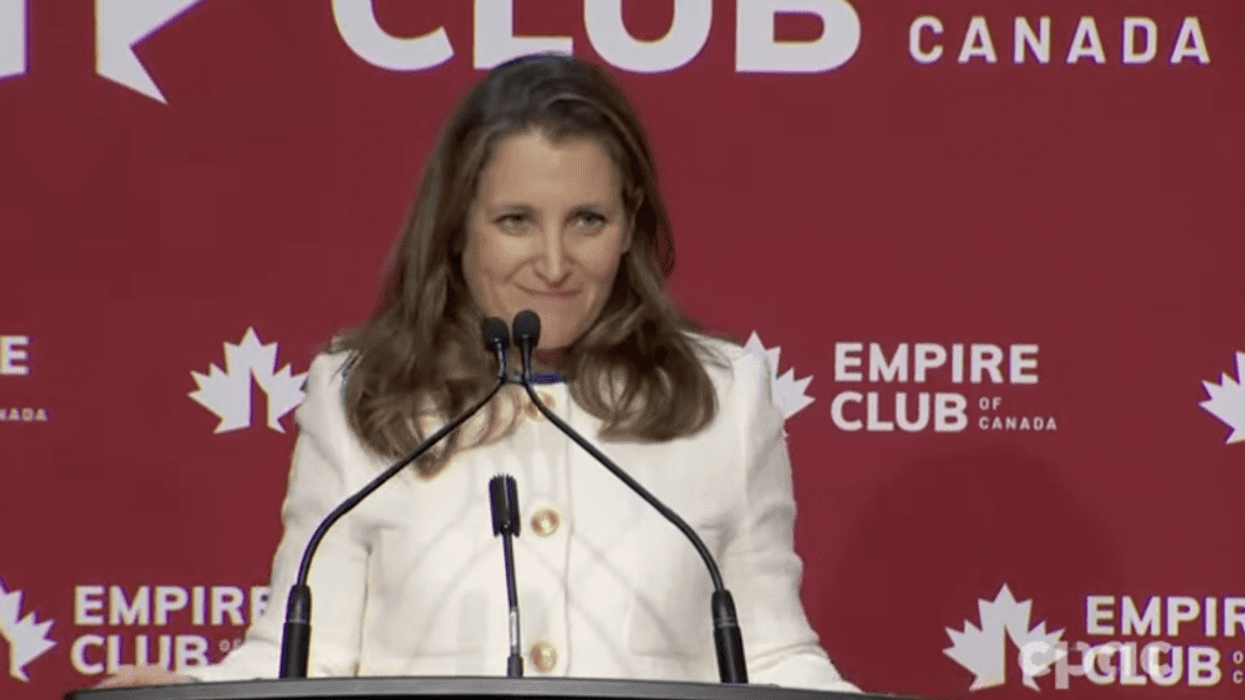Consumers have been feeling extra cash-strapped as of late, as record-breaking inflation growth has eaten into the affordability of everything from gas to groceries. In response, the federal government announced today it will spend $8.9B in supports for those most affected -- namely seniors, low-income workers, and renters.
In a speech made to an audience at Toronto’s Empire Club, Deputy Prime Minister and Finance Minister Chrystia Freeland outlined how funds from the last two federal budgets will be earmarked to “alleviate the challenge of affordability” as a result of inflation.
“I understand keenly that millions of Canadians drive a long way to the store, and that today, they'll wince when they fill up their tank and when they buy their groceries,” she said. “And I know that many of them are asking what their government is going to do about it.”
While emphasizing that the impact of inflation growth in Canada is actually less severe than its G7 peers -- CPI hit 6.8% in April, the highest reading seen in 31 years, but below 8.6% in the U.S., 9% in the UK, 7.5% in Germany, and 9.2% across the OECD – Freeland identified several methods to ease the pain for consumers, dubbed The Affordability Plan:
- A one-time payment of $500 for nearly 1M low-income renters who are struggling to cover housing costs. Average Canadian rents rose by the largest amount in three years in May, up 3.7% monthly and 10.5% annually to $1,888.
- An extra $1.7B to be allocated to the Canada Workers Benefit, a refundable tax credit for low-income working families and individuals. According to the government, approximately 3M Canadians receive this benefit; the increase will up the amount they receive annually by $2,400.
- A 10% increase to Old Age Security (OAS) for Canadians over 75 years old, translating to $766 more paid annually.
- Cutting child care fees by an average of 50% by the end of 2023.
- Indexing to inflation a number of paid-out benefits including the Canada Child Benefit, the GST Credit, the Canada Pension Plan, Old Age Security, and the Guaranteed Income Supplement. The federal minimum wage, which we increased to $15/hour, is also indexed to inflation.
Freeland also took the opportunity to point to the importance of the central bank; it’s the Bank of Canada’s central mandate to maintain inflation at a 2% range.
“The Bank has begun the work of bringing inflation back within target, and it has the tools and the expertise it needs to keep inflation from becoming entrenched,” she stated.
The BoC embarked on its fastest hiking cycle in decades in March, implementing a 0.25% hike that month, followed by two 0.5 increases in April and June, to bring its policy rate to the current 1.5%. At least three more increases are anticipated before it’s through, to bring the benchmark cost of borrowing to a “neutral” range of 3%.
However, the Bank has been the recipient of scathing criticism for not embarking on its hiking mandate sooner, and allowing inflation to run extra hot at the start of the year -- something pundits have said has undermined its credibility. However, Freeland had some pointed words of her own for those who doubt the Bank’s capabilities, saying,
“At this time of global economic and political volatility, undermining Canada's fundamental institutions -- very much including the Bank of Canada -- is highly irresponsible, not to mention economically illiterate. But while fighting inflation is the central bank's job, good government policy can make it easier by tackling the supply constraints which are driving the rise in prices.”





















